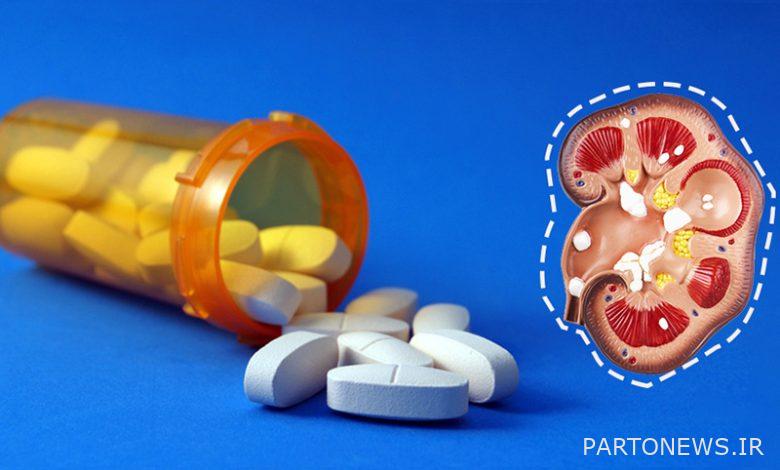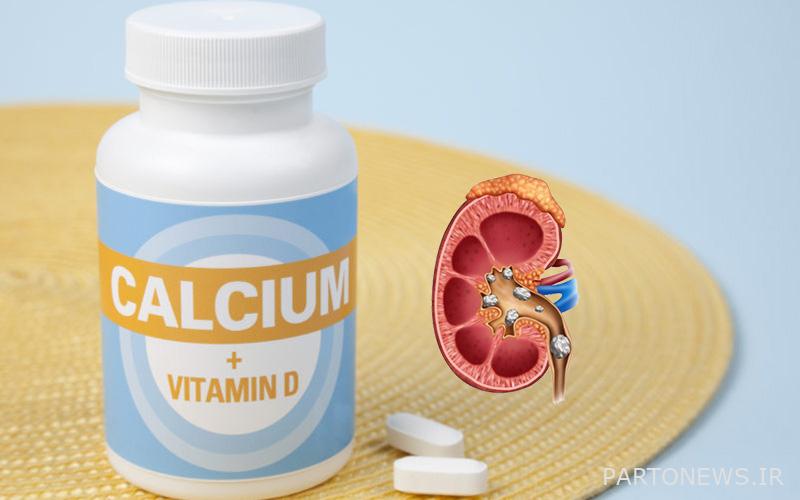If we have kidney stones, can we take calcium pills?

Is it possible to use calcium pills despite having a kidney stone? This is a question asked by many people who suffer from calcium deficiency and kidney stones at the same time. Join us to explain everything you need to know about the relationship between calcium pills and kidney stones. Is there a way to both compensate for calcium deficiency and help maintain kidney health?
To buy kidney stone pills and other supplements for kidney and urinary tract, click on the link provided and enter the positive online green pharmacy.
What are kidney stones and how many types are there?
Kidney stones are a hard object made of chemicals in the urine. There are generally 4 types of kidney stones: calcium oxalate, uric acid, struvite and cysteine. Low back pain, nausea, vomiting, fever and chills, unpleasant odor of urine and urine that looks dull are the most common symptoms of kidney stones. The types of kidney stones we are discussing here are calcium kidney stones:
Kidney calcium stones
Calcium oxalate stones are the most common type of kidney stone. Kidney stones, as mentioned above, are solid masses that form in the kidneys when there is a large amount of calcium, oxalate, cysteine or phosphate and a very small amount of fluid. Oxalate is a chemical that is made daily by the body. Many of the foods we eat, including fruits and vegetables, contain significant amounts of oxalate. Improper diet, high doses of vitamin D, bowel bypass surgery, and several metabolic disorders can increase the concentration of calcium or oxalate in the urine and cause kidney stones.
Of course, many kidney stones are also formed in the form of calcium phosphate. This type of stone is more common in metabolic conditions such as renal tubular acidosis. Certain medications used to treat migraines and seizures may also cause kidney stones in the form of calcium phosphate.
Calcium tablets and kidney stones
Based on the previous explanation, it is well understood that it is only one type of kidney stone that calcium plays a role in its formation and other kidney stones occur for other reasons. In order to better understand the relationship between calcium tablets and kidney stones, we need to give you information about kidney stones:
What is a kidney stone?
Some people produce stones every once in a while, which is why all of them are called stone makers. When certain waste products, such as salts or minerals in the urine, do not pass out of the kidneys, they stick together and form kidney stones. About 40% of people with this condition have a family or genetic history. Their bodies may also produce too much calcium. Other kidney diseases, obesity, gastric bypass surgery, and poor diet (too much alcohol, too much salt, and animal protein) all play a role in causing kidney stones.
If a person has had kidney stones once, they are more likely to get the disease again, and it is recommended that they take preventive measures according to their doctor’s instructions.
Studies on calcium and kidney pills
In 2015, a study found that people with a history of kidney stones would be at risk for recurrence if they took calcium pills or other supplements containing this mineral. The records of more than 2,000 patients were examined and the relationship between calcium tablets and kidney stones was further discussed. However, the researchers said that they do not recommend that people who take calcium pills as prescribed by their doctor take their supplements arbitrarily for their bone health; Because more studies are still needed in this field.

In the above study, researchers examined the cases of 2060 people with a history of kidney stones. About 1,500 of these people took calcium supplements and 417 took vitamin D, and the rest did not take any supplements. Researchers have found that calcium supplements build kidney stones faster than the other two groups. With these interpretations, what should people do who need calcium supplements to maintain the health of their bones and are more likely to develop kidney stones?
If we have kidney stones, how can we supply calcium to our body?
Here are a few things to keep in mind:
- There is a difference between calcium in the diet and calcium in supplements. Many foods in small quantities Oxalate They bind to calcium and are excreted in the urine. Therefore, it is better to generally supply the calcium needed by the body through dietary sources of calcium.
- If your doctor has prescribed calcium supplements to protect your bones, it is best to use this supplement with meals.
- You need to drink enough fluids daily to get rid of waste products more easily. They dilute urinary fluids and excrete substances that cause kidney stones.
Also note that not all kidney stones are caused by an increase in calcium in the body. Therefore, if the kidney stone is of another type, other preventive measures should be taken, such as limiting the consumption of meat or salt.

The best calcium pills for kidney stones
Talk to your doctor about how much calcium pills you need, and if you have a history of kidney stones, be sure to discuss this as well. The best calcium pills for people with kidney stones are calcium citrate pills because they help increase urinary citrate excretion and reduce the risk of stone formation. Here are some examples of calcium citrate tablets:
If you ask: I have a kidney problem and what multivitamin can I use? It should be noted that multivitamin CKD nephritis is suitable for kidney patients and also improves the function of the immune system.
Concluding remarks
In this article, we have explained everything you need to know about calcium tablets and kidney stones. In general, it is better to get calcium in the first place from your diet, but if you have a high risk of kidney stones and you also have to take a calcium supplement, be sure to take this supplement with food and water. Eat a lot. Of course, it is better to use calcium citrate instead of calcium carbonate in consultation with your doctor. But if the medicine is prescribed for you by a doctor, never give it up arbitrarily.
Please rate this article
[مجموع: ۵ میانگین: ۴]


